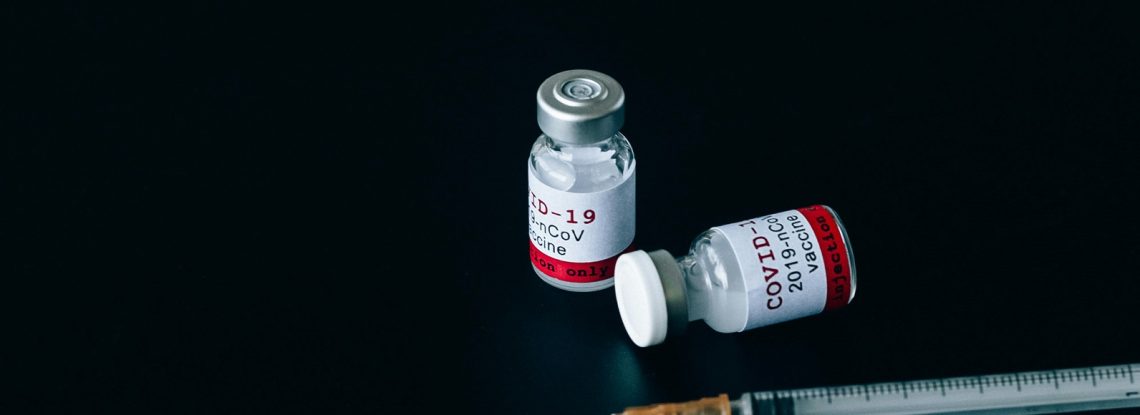A booster COVID-19 vaccination could be offered to people who are most vulnerable to the disease.
The Government announced that millions may be offered a booster from September, as new advice from the Joint Committee on Vaccination and Immunisation (JCVI) suggests this would ensure the protection they have from first and second doses is maintained ahead of the winter. It is also thought that a booster vaccination could further protect against new variants.
Dr Mikael Dolsten who leads the the Worldwide Research, Development and Medical (WRDM) organisation at Pfizer, has also recently announced that early data from a study looking at boosters of the Pfizer coronavirus vaccine indicates antibody levels could jump between 5-10 times after receiving a third dose.
The UK was one of the first to begin studying COVID-19 booster shots. The Cov-Boost study, led by the University Hospital Southampton NHS Foundation Trust, also looked at mixing and matching vaccine types, for example, someone who was originally vaccinated with two doses of AstraZeneca might be given a booster from Pfizer.
The clinical trials needed to validate the booster jabs will take several months to complete,
Why might we need the booster jabs?
The concept of a booster jab is to increase COVID-19 immunity in the event that our immune system is no longer able to effectively recognise and stop the virus. There are two cases in which a booster jab may be necessary. The first is if our vaccine-induced immunity declines over time.
For some vaccines, the level of protection slowly decreases over time until we are no longer protected from infection – for example, cholera vaccines need to be boosted every 6-24 months. Other vaccines, such as the measles vaccine, induce life-long immunity. It is too early to know how long the COVID-19 vaccine immunity lasts, but there is good evidence that immunity will last at least six months for most people.
Will the boosters protect us from new variants?
Regardless of how long the vaccine protection lasts, it is possible that that the virus will change enough that the vaccines don’t work as well. We have already seen that some of the new COVID-19 variants are able to evade some of the vaccine-induced protection, and infections of fully-vaccinated people are being reported.
At present this is still a low rate of breakthrough infections, but as long as the virus continues to circulate around the world, it will continue to mutate, potentially resulting in variants that can more completely evade the immune system. Thus, we also may need a booster jab to compensate for new variants. This is similar to what occurs with the flu jab where the virus changes enough every year that the vaccines can no longer protect against infection, requiring a new jab every year.
Will booster shots have to be the same type (Pfizer, AstraZeneca, etc) as the previous doses?
In either situation, the booster jabs may end up being the same vaccine type used originally or a new vaccine type (e.g. a Pfizer booster after originally receiving AstraZeneca). If the booster is solely given to increase immunity that has faded over time, then the vaccine may be very similar to the original vaccine used. However, if the booster is designed to address a new variant, then the vaccine formulation will likely be slightly different so that it can now protect against new forms of the virus.
This new formulation may offer protection against more variants that the current vaccines do, however, they will not be future-proof. It is possible that someday we will have a universal COVID-19 vaccine that will protect against any variant; however, this is likely a long way off – for comparison, we still do not have a universal flu vaccine.
Who will get the boosters?
All of these boosters will be carefully evaluated through clinical trials in order to demonstrate that they are both safe and effective for different age groups. This includes evaluating any new vaccine formulation as well as looking at how well the vaccines work if you have a booster from a different manufacturer than you were originally vaccinated with. This will ensure that when boosters become available, we know that they are safe. However, it is not certain who would be first to receive the booster jabs.
This would likely be the groups at highest risk of COVID-19 infections or serious illness and possibly the age groups whose immunity wanes the fastest, though the goal would likely be to eventually vaccinate the entire population with the boosters.
When will we need the booster jabs?
It is possible that we get to the point where we need booster jabs in a matter of months from now, or it is possible that we never need boosters.
However, as long as there is continued circulation of COVID-19 around the world, the likelihood of a vaccine-evading variant is high. This is why we need to ensure that we are evaluating booster vaccines for the future, while also striving to eliminate virus transmission worldwide.
Jeremy Rossman is a Senior Lecturer in Virology and President of Research-Aid Networks, University of Kent. His research focuses on the process of infectious disease outbreaks, and he has contributed to studies published in journals including PLoS Pathogens, Bioinformatics and Cell.
This article is written by Jeremy Rossman and was originally published in Science Focus. Read the original article.


